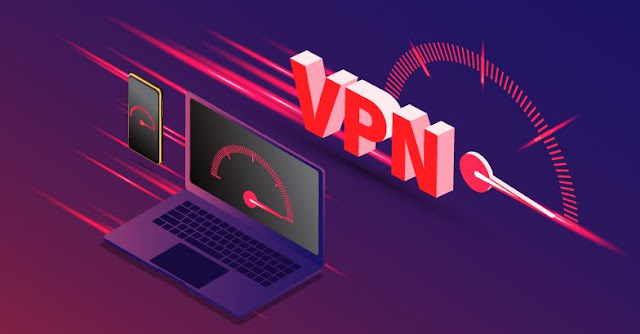
Are you fed up with incessant buffering, lagging internet surfing, and ploddingly slow web connections? Then it is about time to say goodbye to your outdated VPN and find a swifter one that matches your unique requirements. In this digital era where velocity is king, settling for a lethargic virtual private network (VPN) is a no-go. In this piece, we are going to elucidate the vital role speed tests play in identifying the ideal VPN for a flawless online journey. Prepare yourself to say adios to tortoise-like internet connections as we delve into the realm of swift and powerful VPNs poised to reinvent your browsing experience. Strap in – because tortoise-speed is yesterday's news with virtual private networks!
Understanding VPNs
VPNs serve as potent tools that enable secure and private communication over the internet. Taking on the role of a protective barrier, VPNs cipher users' internet connections, making it significantly more difficult for hackers, ISPs, and other third parties to keep an eye on online activities.
Functions Of VPNs
● Heightened Privacy
● Overcoming Geo-restrictions
● Secure Remote Access
● Protection on Public Wi-Fi
● Torrenting and P2P Sharing
● Gaming and Decreased Latency
Varieties Of VPNs
VPNs are available in a broad range of forms and sizes, each boasting distinct features and abilities. If you are in the market for a VPN service Reddit is an excellent source of user feedback. But first, let's provide an overview of the most prevalent types of VPNs:
Basic VPN: A basic VPN delivers uncomplicated, rudimentary security and privacy features, minus any fancy add-ons. They are a good fit for swift and straightforward setup but don't offer much in terms of personalization or versatility.
Secure Shell (SSH) VPN: SSH VPNs employ the secure shell protocol (SSH) to establish an encrypted connection between your computer and the remote server. This VPN type is ideal when you need to connect from behind a firewall or when you desire to keep your activity private and anonymous.
Virtual Private Network (VPN): A VPN is a superb tool to safeguard your online privacy and security. Rather than connecting directly to the internet, a virtual private network (VPN) channels all your traffic via an intermediary server – making it significantly more challenging for anyone prying on your activities to trace back to your computer.
Smart DNS: Smart DNS facilitates access to websites blocked in your region by altering their DNS address to appear as if they are originating from the local domain instead. This service type is terrific for unblocking content on sought-after streaming platforms like Netflix and Hulu, and sites like YouTube and Spotify that ISPs (internet service providers) block in certain countries.
Selecting The Best VPN Through A Speed Test
Speed tests are instrumental in determining which VPN will fulfill your needs best.
One efficient method to explore the speed test outcomes of various VPNs is by utilizing specialized websites designed to gauge internet speeds. These sites empower users to perform speed tests while connected to different VPN servers across the globe.
Prominent speed test platforms like Speedtest.net, Fast.com, and Ookla's Speedtest have integrated features that allow you to evaluate VPN performance.
The procedure is straightforward: choose the VPN server location you want to test and trigger the speed test. Within moments, you will receive detailed data, including the ping rate, download speed, and upload speeds, enabling you to compare different VPNs and make an informed choice.
Factors To Consider For A Reliable Speed Test
When testing various VPNs, ensure to use a speed test that measures actual download and upload speeds. Some providers might only give you an approximation of their performance.
When scrutinizing speed test outcomes, factor in the server location. Reflect on the server's location before selecting a VPN. Some servers are situated in more favorable locations than others, so remember to consider this when choosing a VPN.
Server type is also crucial. Some servers are better equipped for streaming and downloading sizable files, while others are more suitable for web browsing. Ensure to select one that aligns with your requirements.
Always test on a high-speed connection, such as an iPhone or iPad with LTE or 4G service. Not all VPNs perform well on slower connections typically found at home or work.
Why Do VPNs Generally Influence Speed Negatively?
The intrinsic compromise between privacy and speed primarily accounts for why VPNs often lead to diminished internet speeds. When using a VPN, data encryption and rerouting through distant servers introduce an extra layer of intricacy in the data transmission process, leading to a slight latency rise. While this encryption and rerouting are crucial for boosting online privacy and security, they can slightly impede data transfer, impacting overall speed. Nevertheless, innovations in VPN technology continuously work to mitigate this effect, striking a delicate equilibrium between protecting user data and ensuring optimum performance.
Ensure A Swift VPN Experience
As technology progresses, the demand for secure and private online communication intensifies. However, with the plethora of new and inventive communication means available, it can be challenging to ascertain which VPN is most suited for you. Adding to the complexity, not all VPNs are built the same – some deliver speeds that just can't keep up with modern requirements. Thankfully, there is a method to determine the right VPN for your needs: speed tests. By conducting numerous speed tests on different VPNs and comparing their results, you can swiftly identify the best option for you – one that provides speedy connections without sacrificing security or privacy.
